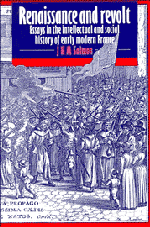Book contents
- Frontmatter
- Contents
- Acknowledgements
- Introduction
- Part I Humanism, stoicism, and interest of state
- Part II Sovereignty, resistance, and Christian obedience
- 5 Bodin and the monarchomachs
- 6 An alternative theory of popular resistance: Buchanan, Rossaeus, and Locke
- 7 Gallicanism and Anglicanism in the age of the Counter-Reformation
- Part III Structures and fissures
- Index
7 - Gallicanism and Anglicanism in the age of the Counter-Reformation
Published online by Cambridge University Press: 23 December 2009
- Frontmatter
- Contents
- Acknowledgements
- Introduction
- Part I Humanism, stoicism, and interest of state
- Part II Sovereignty, resistance, and Christian obedience
- 5 Bodin and the monarchomachs
- 6 An alternative theory of popular resistance: Buchanan, Rossaeus, and Locke
- 7 Gallicanism and Anglicanism in the age of the Counter-Reformation
- Part III Structures and fissures
- Index
Summary
In the eighteenth century Gallicanism and Anglicanism offered many striking differences, particularly in terms of the social background and political attitudes of their respective episcopates. In the sixteenth and early seventeenth centuries, however, the political ideologies of the two national churches showed some remarkable similarities, despite the fact that one was Catholic and the other Protestant. What initially was merely a parallel development at a time of increasing royal authority over ecclesiastical administration became, under the challenge of a resurgent papacy with universal claims, a matter of imitation, reciprocal influence, and even association.
Memories of this association still lingered in the eighteenth century. In 1706 William Wotton dedicated the last volume of his translation of Elie Dupin's Gallican-inspired Ecclesiastical History to Thomas Tenison, Archbishop of Canterbury and critic of the Jesuits. He was conscious of a tradition, for he noted that in 1620 Nicholas Brent had offered his English version of Paolo Sarpi's History of the Council of Trent to George Abbot, Tenison's predecessor during a period of intense controversy with Rome. Dupin's last volume was devoted to the Counter-Reformation, particularly the discussions at Trent, the personalities of the new breed of popes, and the rise of the Jesuits and other new orders. For the events at the council and their repercussions, it drew heavily upon Sarpi's work and also upon his Gallican friends, who had collected past antipapal diatribes, resisted the reception of the Tridentine decrees, and contributed their own polemics against Rome and the Jesuit order.
- Type
- Chapter
- Information
- Renaissance and RevoltEssays in the Intellectual and Social History of Early Modern France, pp. 155 - 188Publisher: Cambridge University PressPrint publication year: 1987
- 4
- Cited by



